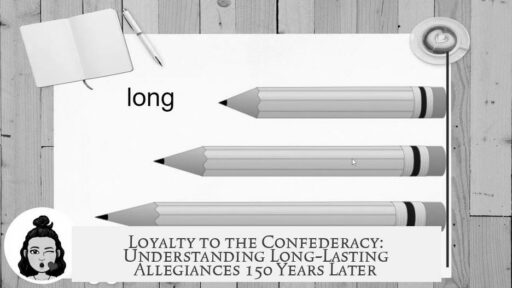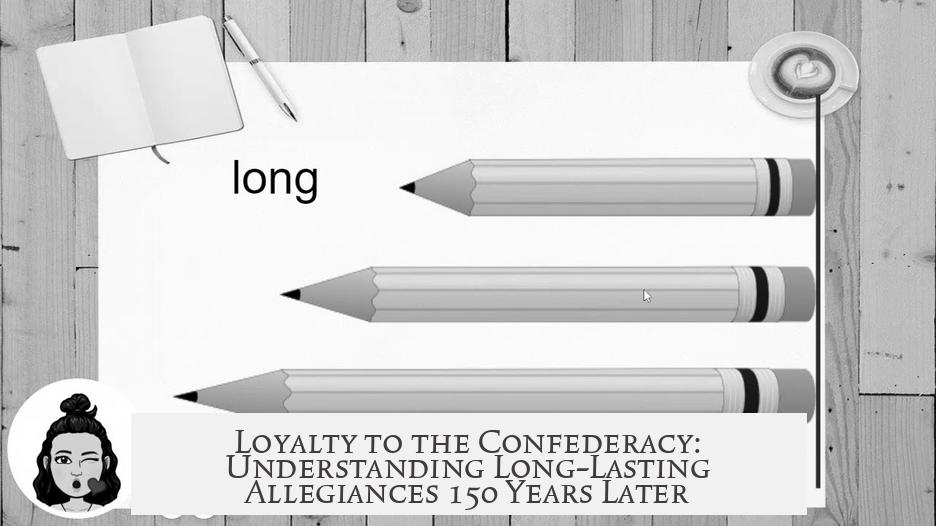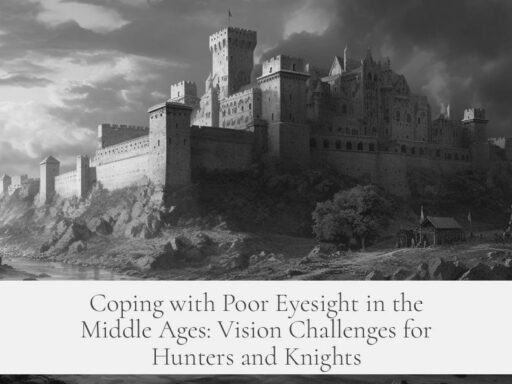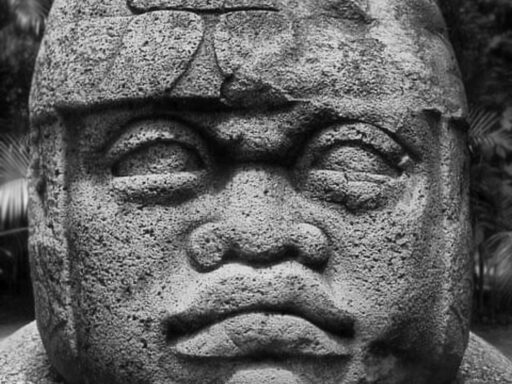The Confederacy only lasted for five years, yet loyalty to it endures 150 years later due to complex historical, cultural, and social factors. This loyalty extends beyond a simple remembrance of a lost war. It draws from deeply rooted ideologies, conflicting narratives of history, familial pride, and unresolved emotions that continue to influence perceptions and identities, particularly in the American South.
One major reason for this sustained loyalty is the Lost Cause ideology. Developed in the late 19th and early 20th centuries, it reshaped the narrative of the Civil War across the United States. Instead of focusing on slavery as the central cause of the war, the Lost Cause presented the Confederacy as champions of states’ rights and noble defenders of their homeland. The Confederate soldiers were reimagined as honorable men, led by figures like General Robert E. Lee, who fought bravely against overwhelming odds.
This reinterpretation helped ease Southern reintegration into the Union, but at a significant cost: the erasure of slavery’s central role and the suffering it caused. The Lost Cause spread through education, literature, and mass media. Films like Birth of a Nation (1915) and Gone With the Wind (1939) popularized and romanticized this alternate history nationwide. This cultural shift worked to pacify sectional tensions but perpetuated myths that continue today, making it easier for many Southerners to honor their Confederate ancestors as heroes rather than traitors.
The process of national reconciliation after the Civil War further solidified this narrative, but it also sidelined racial justice. Both North and South focused on honoring soldiers from both sides, emphasizing valor and sacrifice over the realities of slavery and racial inequality. Black Americans’ contributions, such as those by the US Colored Troops, were marginalized or omitted from mainstream histories.
This collective forgetting allowed the United States to heal politically and socially but ignored the ongoing injustice faced by African Americans. Instead of confronting the causes and consequences of slavery, white America, especially in the North, accepted a redefined Civil War that downplayed race. This historical amnesia remains part of why Confederate symbols and ideology retain some support today.
Family and local heritage also play significant roles in sustaining loyalty to the Confederacy. Southern communities historically valued strong family ties and preserved the legacy of ancestors who fought for or supported the Confederate cause. Unlike the North, with its diverse immigrant populations, the South maintained a cultural continuity more directly connected to its Civil War past.
For many descendants, allegiance to the Confederacy is linked to familial pride and identity. The memory of the Confederacy is not merely historical; it is personal. This has resulted in a persistent sense that the Civil War is an unfinished conflict, a “ceasefire” rather than a definitive end. This perception makes loyalty to the losing side psychologically acceptable for many, as they view it as validation of their heritage and values.
Unresolved emotions, particularly feelings of having their way of life attacked, also fuel continued loyalty. For some, the war is not just history but a matter of identity and community. Civil War commemorations and education in certain regions reinforce these beliefs from a young age, treating the Confederacy’s legacy much like a religious faith. This ongoing dedication can be seen in contemporary debates over Confederate monuments and flags, where defenders often claim they are protecting heritage rather than promoting divisive ideology.
Overall, several intertwined factors explain why loyalty to the Confederacy persists:
- The Lost Cause ideology reshaped the narrative to dignify the Confederacy and downplay slavery.
- National reconciliation prioritized unity over racial justice, sidelining African American experiences and contributions.
- Family loyalty and Southern community identity created lasting bonds to Confederate ancestry.
- Unresolved feelings about heritage and perceived injustices have made the war’s legacy emotionally charged.
This complex legacy means that what began as a short-lived rebellion endures through narratives and identities that some hold as essential to their history. Attempts to address or remove Confederate symbols often encounter resistance framed as defending cultural heritage. Understanding this dynamic requires acknowledging the historical roots while also recognizing the ongoing debates about memory, race, and justice.
| Factor | Effect on Confederate Loyalty |
|---|---|
| Lost Cause Ideology | Recasts Confederacy as noble defenders, minimizes slavery’s role |
| National Reconciliation | Focuses on valor over racial justice, excludes Black contributions |
| Family and Community Heritage | Maintains emotional and cultural connection to Confederate ancestors |
| Unresolved Identity Issues | Keeps Confederate loyalty alive as an expression of community and pride |
Key takeaways:
- The Lost Cause reshaped Civil War memory to honor the Confederacy, reducing focus on slavery.
- Postwar reconciliation neglected African American histories and perpetuated racial injustice.
- Family traditions maintain Confederate identity across generations in the South.
- Ongoing emotional ties and identity politics reinforce loyalty to the losing side.
The Confederacy Only Lasted for 5 Years. Why Do Some Still Remain Loyal 150 Years Later?
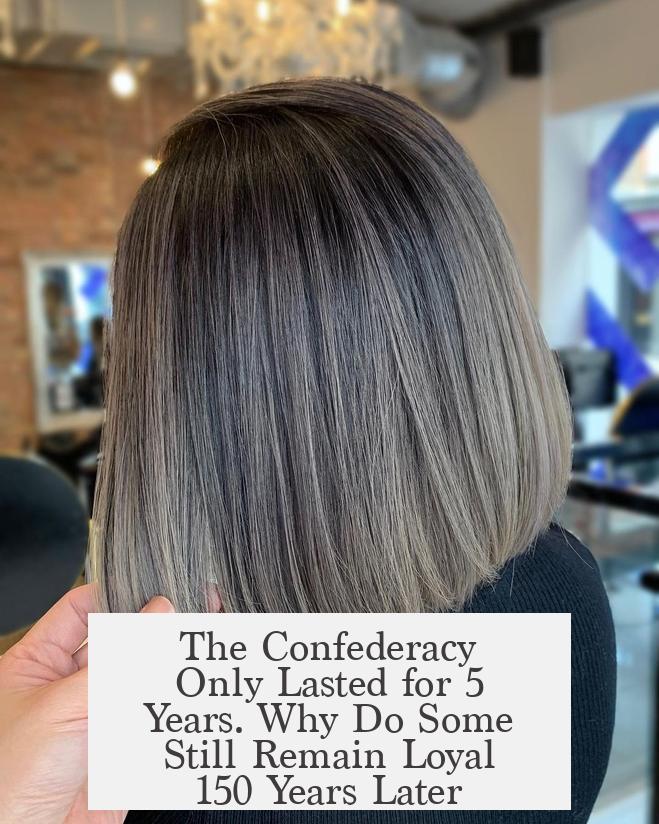
Why do some people remain loyal to the Confederacy more than 150 years after it lost the Civil War? The answer goes beyond simple nostalgia or stubbornness. Loyalty to the Confederacy persists due to a mix of ideology, family heritage, selective memory, and unresolved feelings about identity and justice.
Let’s unpack this complex story. The Confederacy’s actual lifespan was shockingly short — just 1861 to 1865. One might think defeat after such a brief period would close the chapter for good. But the legacy didn’t just fade. Instead, it morphed and embedded itself deeply into cultural, social, and political fabrics.
The Lost Cause: Rewriting History to Heal and Divide
After the Civil War, the entire United States faced a daunting challenge: how to reunite a shattered nation? The solution? Knit a narrative that glorified soldiers on both sides, brushing aside the war’s core cause — slavery.
The Lost Cause ideology emerges here like a cultural Trojan horse. It transformed the Confederate soldiers into honorable heroes valiantly defending states’ rights. In reality, slavery was the central cause. But by glorifying generals like Robert E. Lee and reframing the conflict as a struggle for federal power limits, the Lost Cause ideology softened the brutal truth.
This idea spread like wildfire, infiltrating textbooks, magazines, and even Hollywood. In fact, the first movie ever screened in the White House in 1915 was Birth of a Nation, a film steeped in Lost Cause and racist themes glorifying the Ku Klux Klan. Later, Gone With the Wind, another Lost Cause-infused film, went on to become the highest-grossing film when adjusted for inflation.
Such cultural products normalized the Confederate story nationwide, not just in the South. It was an uneasy peace tactic—pacify the South and help reunify the country, but at the cost of historical truth.
Reconciliation at the Price of Racial Justice

This selective memory didn’t just happen in the South. The North played a role by focusing on reconciliation over racial justice.
By the late 1800s and early 1900s, the nation’s official story increasingly centered on valor and sacrifice, not on slavery’s role or Black Americans’ ongoing oppression. African American soldiers’ contributions were minimized or erased, and racial discrimination remained unaddressed for decades.
In this way, white America “healed” by essentially sidelining Black America’s role and suffering. The war was sanitized for United States unity, but this left deep wounds unhealed and resentment festering under the surface.
Family Pride and Southern Identity Fuel Enduring Loyalty
In the South, family heritage and pride carry significant weight. Generations often trace their lineage back to Confederate soldiers. A family’s name and legacy are intertwined with the Confederacy’s history.
For many descendants, the Civil War didn’t end in 1865 — it became a family story passed down like folklore. Loyalty to the Confederacy isn’t just about ideology; it’s about honoring ancestors and maintaining identity in a rapidly changing world.
These families often see their forebears not as traitors, but as brave people defending their homes and values. This belief makes it emotionally acceptable—even necessary—to maintain loyalty to the Confederacy despite its defeat and moral issues.
The War That Never Fully Ended: Unresolved Feelings and Beliefs

There’s a persistent belief among some Southerners that the war was an attack on their way of life, not just a political conflict. Such feeling never fully dissipated but evolved into a cultural cause.
For some, Civil War history is practically a religion. Children grow up learning detailed accounts of battles, heroes, and family involvement. The war becomes less a historical event and more an identity marker.
This sense of living history perpetuates loyalty because it’s deeply personal. To challenge this loyalty is to challenge a person’s roots and their understanding of self.
So, Is It Really Acceptable to Remain Loyal to the Losing Side?
Here’s the million-dollar question: From an ethical and historical perspective, should people still feel loyalty to a cause that supported slavery and rebellion?
Many argue no, and rightly so. The Confederacy fought to preserve slavery and racial hierarchy. But understanding why loyalty persists requires empathy for how that history is remembered and framed.
- People cling to what gives them identity and purpose.
- Shared narratives and cultural symbols create deep emotional bonds.
- Unaddressed historical grievances and family pride fuel continued allegiance.
Attempting to erase such loyalty without offering room for dialogue or reckoning with history is unlikely to succeed. Instead, educating about the full truth and encouraging critical reflection can gradually shift perspectives.
Breaking Down the Legacy for a Better Future

Here are a few steps that can help communities move beyond selective loyalty:
- Honest Education: Teach the full history of the Civil War, including slavery’s role and African American contributions.
- Contextualizing Monuments: Instead of outright removal, provide historical markers explaining the complex history behind Confederate statues and symbols.
- Community Dialogue: Encourage open conversations acknowledging pain and shared history, striving for reconciliation that includes racial justice.
- Celebration of Shared Heritage: Recognize Southern culture without glorifying the Confederacy’s problematic past.
Ultimately, understanding the reasons behind enduring Confederacy loyalty is the first step toward addressing the fractures it causes.
Conclusion: Loyalty Is Complex, But So Is History
Though the Confederacy only lasted five short years, what came after shaped the collective memory and identity in powerful ways. The Lost Cause ideology, reconciliation without racial justice, family pride, and unresolved feelings all keep loyalty alive 150 years later.
It’s not just about winning or losing a war. It’s about how people make meaning from history and the stories they tell about themselves. Questioning and unpacking those stories can be uncomfortable but necessary if society wants to heal and move forward together.
Does that mean it’s okay to remain loyal? That’s up to each person’s conscience, but understanding the full picture helps us all make better choices about how we remember the past—and build the future.
Why do some people still feel loyal to the Confederacy 150 years after the Civil War ended?
Many Southern families passed down pride in their ancestors and their cause. For them, the war never fully ended. Loyalty is tied to family history and identity. They see their ancestors as honorable defenders of their way of life.
How did the Lost Cause ideology influence continued support for the Confederacy?
The Lost Cause shifted the narrative to frame the South as fighting for states’ rights and honor, not slavery. It glorified Confederate soldiers and leaders in books and movies. This helped millions accept and celebrate the Confederate cause for generations.
Why was reconciliation after the Civil War difficult regarding racial justice?
National unity came at the cost of ignoring slavery’s role in the war. African Americans’ contributions were minimized and racial injustices after the war were sidelined. This created a version of history that emphasized white soldiers’ honor over racial truth.
How did Southern family traditions contribute to long-term loyalty to the Confederacy?
Southern culture kept strong family ties and pride in Confederate ancestors alive. Unlike the North, where many new groups arrived, the South maintained a continuous link to Confederate heritage through generations.
What role do unresolved feelings play in maintaining Confederate loyalty today?
Many in the South feel their culture and rights were attacked during the war. These unresolved feelings have been passed down. For some, Civil War history is a deeply personal and ongoing part of their identity.
